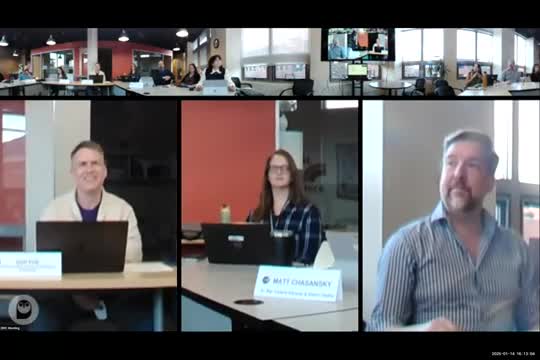Staff explains downtown spending performance, RTD EcoPass costs and accounting quirks in sales-tax report
Get AI-powered insights, summaries, and transcripts
Subscribe
Summary
City staff reviewed downtown financials and explained why some programs show low 'spend performance' (vacancies, EcoPass ridership), how credit-card-fee changes affected customer-service expenses, and how Saint Julien reimbursements appear as revenue under government accounting.
City finance staff answered commissioner questions about the Downtown Management Commission’s financial and sales tax reports at the Jan. 14 meeting and explained several items that commissioners flagged as unclear.
Elliot, staff member, explained the report’s “spend performance” metric: the city measures how much of a work group’s appropriated budget has actually been spent; vacancies and unfilled positions lower personnel spending and therefore reduce “spend performance.” Elliot said the commission’s asset-management program appeared at roughly 50 percent because of vacancies and program timing; the goal, he said, is to reach 100 percent.
Elliot also told commissioners that the district’s parking and customer-service numbers were affected by changes in external contracts. He said RTD EcoPass contract changes reduced ridership and lowered related spending, while a vendor change for credit-card processing (to a vendor called Metropolis) moved card-fee expenses off the district’s books and reduced expenses reported in customer service for late 2023 and 2024. Elliot said unspent district funds go back into the district fund balance rather than the general fund.
On an apparent spike in miscellaneous parking revenue, staff explained the figure was largely an expense recovery: staff paid for capital repairs at the Hotel Saint Julien and were later reimbursed by the property owner; government accounting records the reimbursement as revenue even though it functioned as an expense recovery. Staff also flagged an “unknown” budget column driven by encumbrance accounting and double-counting in the old financial system; staff said the $2.8 million available number is accurate if the unknowns are included.
Staff said this is the last meeting using the old report format; the city is switching to Workday Financials with a Foundations Data Module and will publish a redesigned report once the Workday reporting is configured. Commissioners asked for continued high-level fund health reporting in the new format.
Commissioners thanked staff for the explanations and asked for continued clarity on line-item definitions and any material accounting shifts as the city migrates reporting systems.
